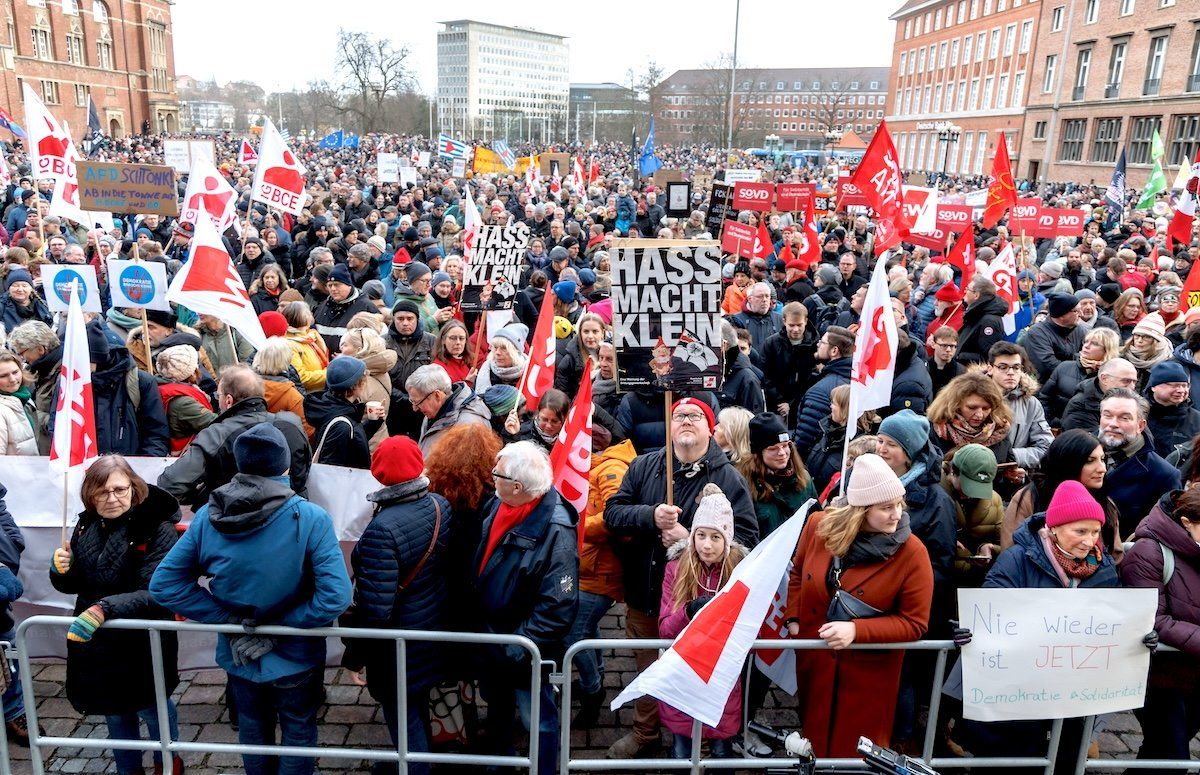Every few months, there is new media coverage of a surge in public support across Europe for populists identified as “far right,” meaning that their policies reflect a kind of tribalist, anti-immigrant anger. The trend is real. We’ve seen it in different forms in every major country in Europe. But less media coverage is devoted to the political backlash these parties sometimes provoke when their opponents can argue they’ve gone too far. That’s real too.
That’s one way to understand why the Alternative for Germany party, or AfD, was narrowly defeated last weekend in a local election in a place it has scored wins in the past. A recent scandal involving contact between AfD leaders and officials considered neo-Nazis – conversations that reportedly centered on plans to deport immigrants, including some who have German citizenship – set off a firestorm.
Last weekend, anti-AfD protests filled the streets of some 30 German cities, and that sentiment appears to have pushed higher-than-expect turnout among anti-AfD voters for the election in the German state of Thuringia.
There will be larger elections in this region in September, and AfD may well perform much better. But last weekend’s protests and local election results, from a place considered an AfD stronghold, remind us that Europe’s anti-populist political forces are strong too.
